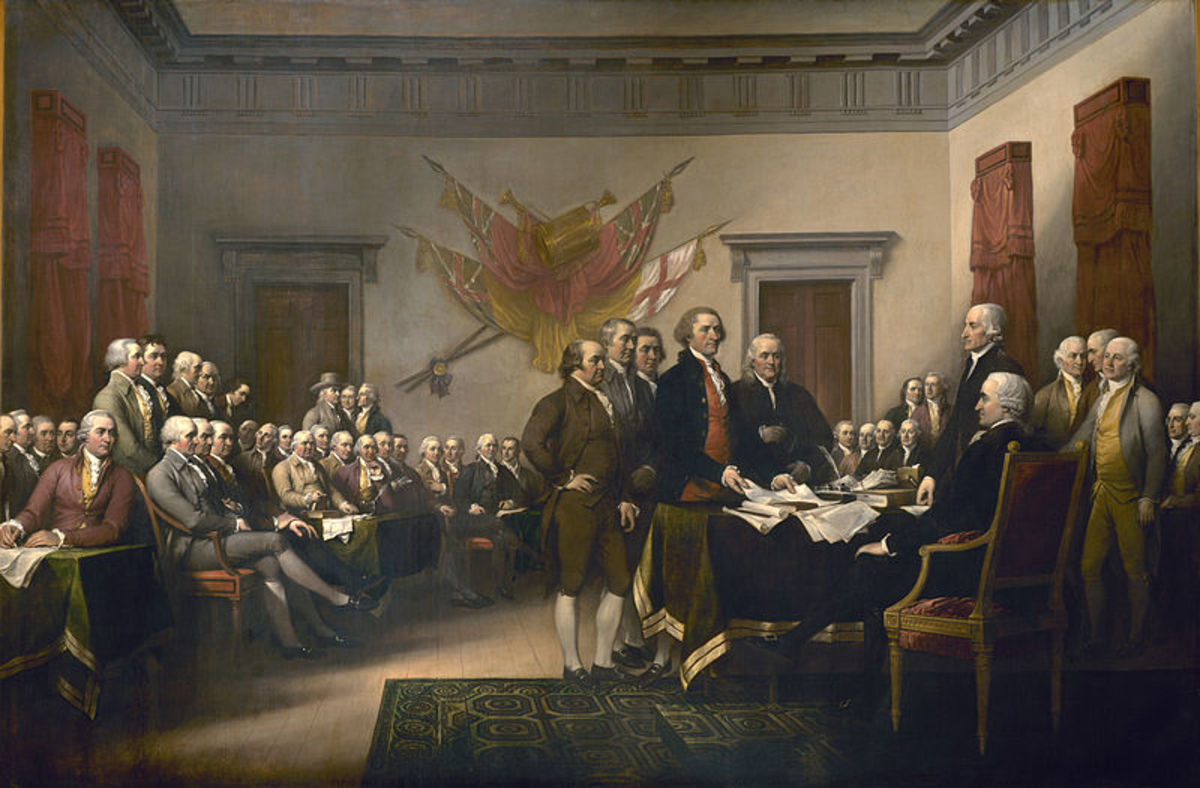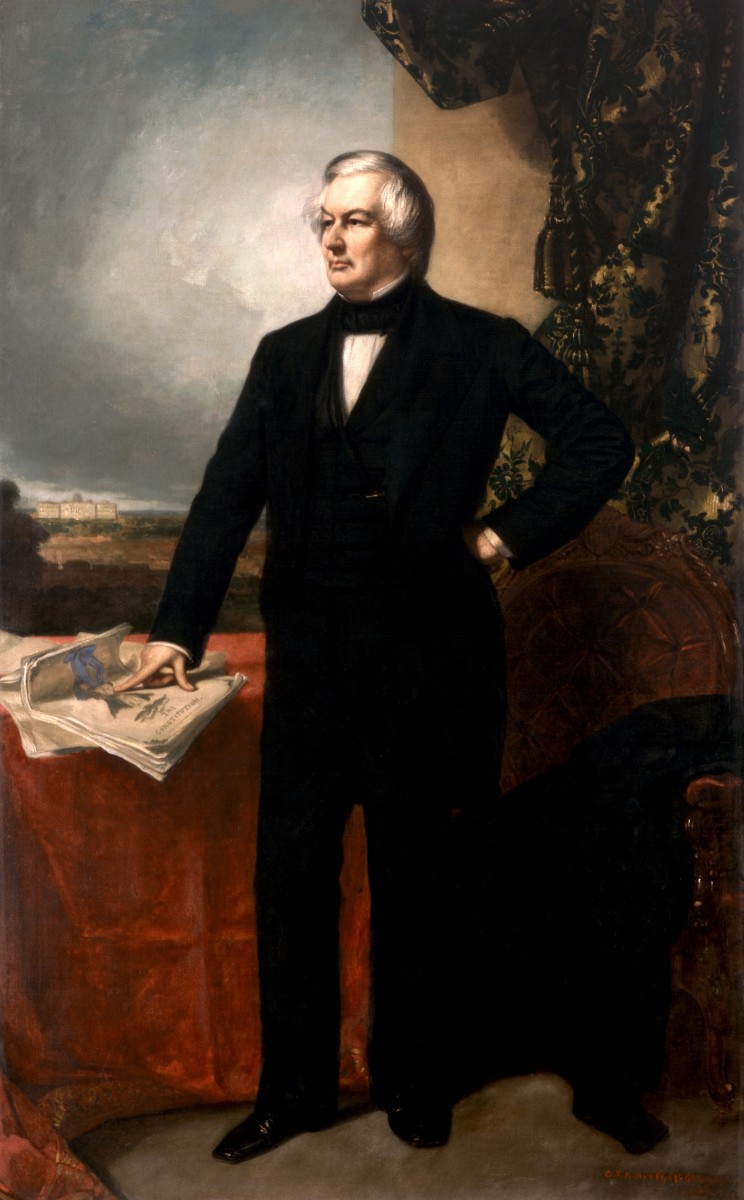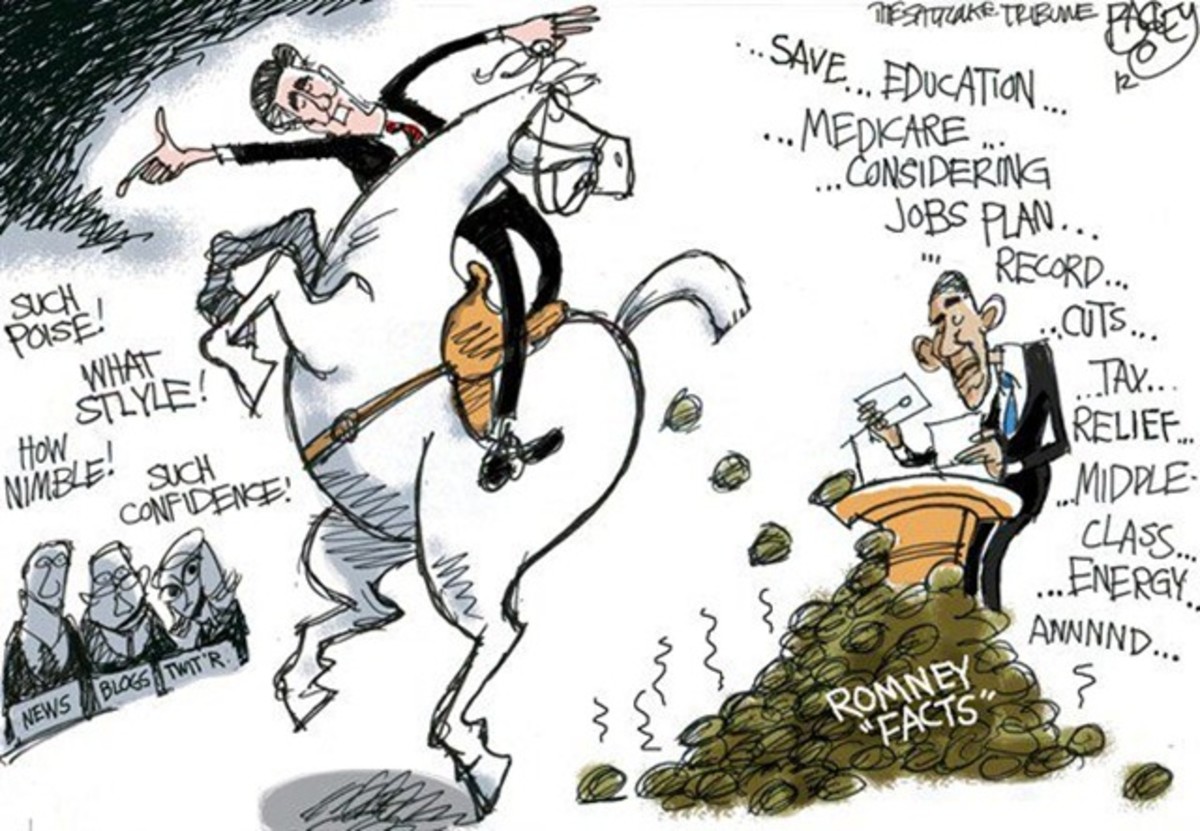Twisted Realities or Universal Truths: Campaign 2016
Partisan+Politics= No Personal Choice
After months of listening to political debates plus reading about the comments and antics of various Presidential contenders, it has become increasingly clear that several twisted elements of reality seem to have evolved into universal truths, the first of which is you can’t take the partisan out of politics along with the codicil you can't take the politics out of the career politician. (The public's disgust with the latter, of course, accounts for the current phenomenon known as Donald Trump.) In my experience, as much as I have attempted to familiarize myself with the contenders on both sides of the political spectrum, whenever I have attempted to discuss disparate political views, the result seems to be a frustrating variation of The Boomerang Effect: The person(s) with whom I am attempting to have a discussion immediately and vehemently support(s) one of the candidates from his/her designated party and just as vehemently disparage(s) those affiliated with the other party, i.e., “the enemy,” at which point “discussion” degenerates into name-calling. This strict adherence to partisan politics prohibits any reasonable discussion of issues and is in large part responsible for the unacceptable state of affairs in our government at all levels. (Pennsylvania’s continuing failure to pass a budget is merely one example of Partisan Politics in action or, in this case, inaction…) It is indeed a rarity for members of both political parties to agree on …well, anything… except something like their lucrative pension plans and generous vacation time, perhaps.

Partisan Politics
Are you willing to consider and/or discuss in a reasonable manner ideas set forth by members of the opposing political party?

Egos Line Up Here
Another universal truth: all successful politicians, whether they career politicians or those who entered the arena later in their careers, are egotists. Think about it. Anyone who feels confident that he/she is the person most capable of being the leader of the free world must have quite an ego. In some cases, of course, there is a very thin line between egotism and narcissism. (Fill in the blanks with at least one of the candidates from each party.) Being egotistical isn’t always a bad thing, though (except when directed towards one’s spouse, perhaps,) particularly when one is dealing with the (egotistical) leader of another country. In fact, humility will often come back to bite even the least egotistical. A prime example would be Dr. Ben Carson, one of the many Republicans hoping to secure the party’s nomination. Dr. Carson, a retired pediatric neurosurgeon affiliated with Johns Hopkins, has many well- documented successes to his credit. His humble demeanor during the Republican debates, however, has elicited comments to the effect that he is barely awake let alone excited by the opportunity to speak. No one has accused current frontrunners Hilary Clinton, Ted Cruz, Marco Rubio, Bernie Sanders or Donald Trump of that unpardonable political sin.
The News? Really?
One “truth” that has been becoming more evident throughout the past few decades is that the definition of the word news has taken on a whole new meaning. For one thing, objectivity and news used to walk hand in hand. Numerous adjectives and adverbs could only be seen on the editorial, comics, and social pages of a newspaper. The “lead” of a news article (first paragraph, preferably no longer than one or two sentences) was intended to answer “the 5 w’s” (who, what, where, when, why and sometimes “how,”) not to offer a reporter’s take on the subject. Nowadays, the news section of the newspaper- even the previously sacred front page- are rife with all kinds of embellishments. For many reporters, “just the facts” has evolved into “just the facts as I see them.” Recently, for example, the point of the lead article in our local newspaper, complete with headline set in large, bold print, was that a local mayor had delivered a glowing State of the City Address, despite the fact that the FBI has been investigating “corruption at City Hall” and city council had asked for the mayor’s resignation. The lead of the story, however, was one sentence noting how it took a week for the city to recover from a near-blizzard. The article itself was well written, and there was news embroiled within the text, but it certainly read more like a good story than news. So how does one tell the difference between just the facts and the facts with a spin? Probably the only- or at least the most realistic- way to accomplish this? Be aware and Be vigilant , since the news media has become more about reading between the lines than about accepting everything as fact.

Network Journalism 2016
The current definition of news is reflected no more glaringly than on television. The news segments of 21st century broadcast media decide not only what news they choose to cover but also what spin they wish to place on each person or event. Pay careful attention to your local nightly newscasts. It shouldn’t take long to figure out the station’s leanings, political and otherwise. “Back in the day” (actually, not that long ago ), when everyone knew that CNN leaned to the left and FOX to the right, it was assumed (at least by some of the American public, myself included) that the Big Three were for the most part unbiased. That certainly is not the case today. Watch the news on CBS, ABC, or NBC any night; it won’t take long to discern where the stations’ loyalties lie. Take that fact one step further, and it brings us to The Elephant(s) in the Room during the current presidential debates.
Those Pesky Elephants
No, I’m not referring to Donald Trump. Rather, consider the nebulous title “Debate Moderators,” which, sadly, often translates to mean biased reporters creating a situation in which they attempt to channel their preferences/prejudices to the viewing audience. According to dictionary.com, a “moderator” is a person who presides over a panel discussion on radio or television. Some of the current “moderators,” however, seem to have no problem going beyond the facilitator role of presiding into the political realm of manipulating. The film clips of Ted Cruz that appeared during the January 28th Republican debate, for example, were deliberately orchestrated to show how Cruz’s stance on immigration has taken an abrupt turn through the years. (And no, I am not a fan of Ted Cruz.) It would seem to me, however, that it would be the responsibility of the other candidates on the stage, not of the debate moderators, to point out Cruz’s or any other candidate’s shortcomings.

Debate or Debacle?
The current role of some debate moderators, of course, is merely a symptom of the major changes which the debate forum itself has undergone. “Back in the day” when I was a student (and not all that far back when I was a teacher,) a debate was an orderly discussion focused on differing points of view about an established topic following a proscribed set of rules. The political debate forums of today bear only a loose resemblance to those debates of yore. If I remember correctly, the moderator’s job was to keep the respondents on track, ensure that each participant was afforded equal time to argue his/her point, and make sure each participant did not speak longer than the time allotted. It did not include confronting the debaters with thinly veiled accusations and personal attacks. For example, during the January 28th debate, moderator Megan Kelly asked candidate Marco Rubio, “Doesn’t your position run afoul of the First Amendment?” That question would have been more appropriately posed by one of Rubio’s political opponents.

Who Cares?
The closer this country comes to the Presidential election, however, I find myself asking, “Does anybody really care?” Do committed Democrats not care that there are many disturbing, unanswered questions about the attack on the U.S. Embassy at Benghazi when Hillary Clinton served as Secretary of State? What about diehard Republicans? Are they not incensed that Donald Trump opted out of a debate simply because he doesn’t like one of the moderators? (That tactic reminded me of some of the antics I witnessed in middle school.) And what about Bernie Sanders… does no one recognize the oxymoron inherent in the fact that a socialist is running for the Presidency of a democratic nation? Then there’s Ted Cruz, the Elitist Republican. Talk to someone who attended Harvard Law School when Cruz was a student there (I have) or those who worked with him. Just the other day, someone commented in reference to the candidates, "I don't like any of them." And that's not the first time I've heard someone say something along those lines. What's the answer, then? Will the 2016 Presidential election result in a new, even more frightening Universal Truth? What do you think?









